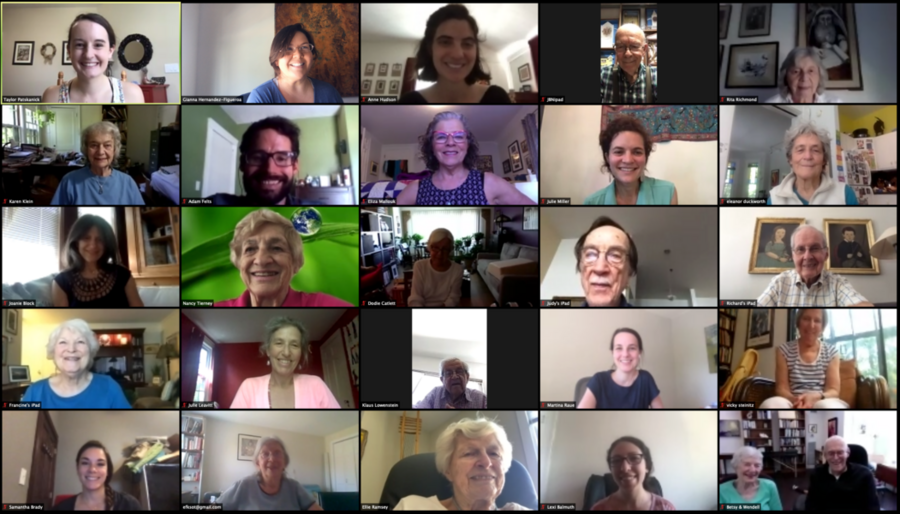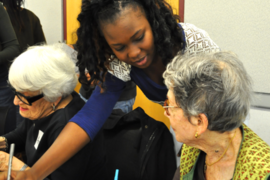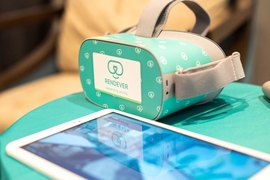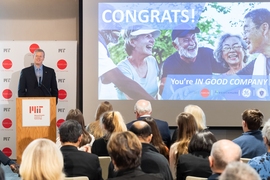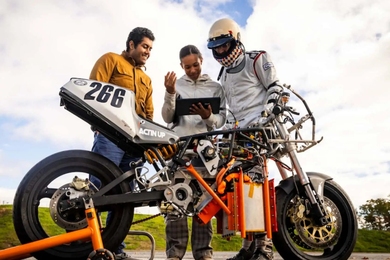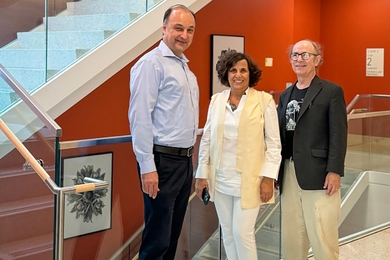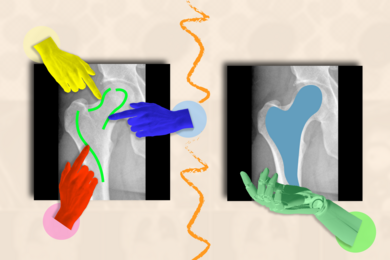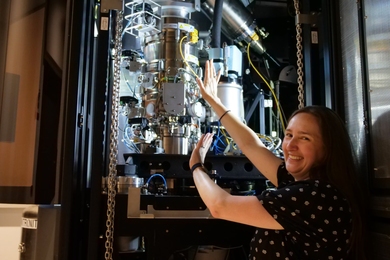Since 2014, the MIT AgeLab has hosted a bimonthly research panel of adults aged 85 and older — the fastest-growing age demographic in the United States — on the MIT campus. AgeLab researchers have queried the “Lifestyle Leaders” panel on life’s smallest details and the most universal issues — sex, death, politics, loneliness.
Drawn from the Boston metropolitan area, the 85-plus-year-olds who comprise the Lifestyle Leaders panel are more educated, wealthier, and healthier than most Americans of their age group. AgeLab founder and Director Joseph Coughlin views the group as representing the future of aging in America. “They’re an example of William Gibson’s adage that the future is already here, but just not evenly distributed yet,” he said. “They live on the frontier of aging today, but for future generations, I think this cohort will serve as a model for our common life experience.”
The panel has been a research boon for AgeLab investigators. Findings from the Lifestyle Leaders workshop have been published in over a dozen peer-reviewed conference papers and journal articles. And the benefits are mutual. The panelists have attested to the value of talking about their lives and experiences in a group setting, as well as enjoying making contributions to a scientific enterprise.
Beginning in March 2020, in-person meetings of the Lifestyle Leaders panel were indefinitely postponed due to the spread of Covid-19 in the United States. Because of the high susceptibility of older adults to the virus, the initial decision to postpone the group was made well before MIT transitioned its operations to remote work. Given the special risks entailed by the age group, it was difficult for AgeLab researchers to imagine when the panel would be able to meet safely again.
To remain in contact with the panel, AgeLab researchers organized a remote study and outreach initiative called the “Day in the Life” study to offer support to the Lifestyle Leaders and to better understand their experiences during the pandemic. During their outreach, the researchers discovered that many of the Lifestyle Leaders were using communication technologies to stay connected despite being physically distanced.
“Members of the panel who wanted to keep up with their long-running group activities had become adopters of Zoom and other video-conferencing platforms,” says Taylor Patskanick, who co-organizes the Lifestyle Leaders panel. “We have a number of MIT alumni in the panel, so we weren’t too surprised. And on the whole, older adults are more-eager tech adopters than most people think.”
Given the promising technical capabilities of the panelists, AgeLab researchers decided to try hosting a virtual Lifestyle Leaders meeting over the Zoom videoconferencing platform, with a contingent of staff available to exclusively assist with technical support. “We had confidence that it would be a success, but at the same time, we had no idea what it would be like to host this group virtually,” says Julie Miller, who also organizes the panel. “We expected both a very productive meeting and some pitfalls.”
The topic of the workshop was creativity: What activities did the Lifestyle Leaders participate in to express themselves, to pass the time, and to discover new sources of meaning in their lives? To help facilitate the group, the AgeLab invited members of the Elder Ensemble of Prometheus Dance, a modern dance group of women aged 65 and older, to speak about their art form.
The discussions among the Lifestyle Leaders revealed the range and depth of activities the group participates in. John Nelson, a member of the Lifestyle Leaders who participated in the workshop, says that he has been an avid woodworker for 70 years. “So far, I’ve only lost half of one digit, so I’m doing okay,” he says. “I’m just absolutely smitten by wood. I love the grain, I love the feel, I love the smell. Besides my wife, it’s the next thing I like.”
Anne Umansky, another member of the panel, spoke about the rewards and challenges of being a memoirist. “[It’s about] looking for something that you will probably never really find … I think it’s a way of completing the puzzle of your life, and figuring out how it all connected.”
Umansky, along with some other group members, observed that exercising creativity during the pandemic was not always easy. “I want to get back some energy that I’ve lost. I’ve just been stopped in my tracks,” Umansky says.
Some technical issues during the workshop were unavoidable. A few participants never figured out their audio settings; closed captioning for hearing-impaired panelists faltered; and the move into Zoom breakout rooms generated some disorder.
But overall, this virtual workshop of the “oldest old” was a success. “This is a safe way forward for us to continue our research and outreach during the pandemic,” says Patskanick. “And it’s an example that, regardless of age, it’s always possible for us to come up with new solutions for us to better live our lives, not to mention to create meaning.”
Due to Covid-19, the Lifestyle Leaders panel currently meets virtually over the Zoom videoconferencing platform. The MIT AgeLab is recruiting nationally within the United States for participants ages 85 and older who would like to participate in remote surveys and focus groups.
